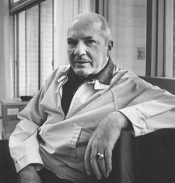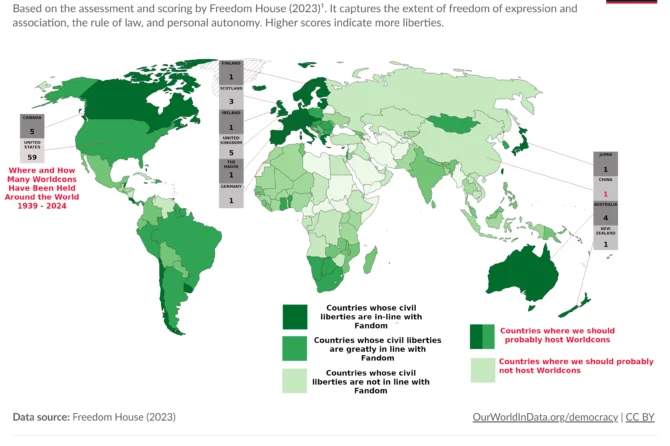What does Amazing Stories want? We want Science Fiction.
What do we like? Big Ideas. Plausible Science. Exciting Adventure. Compelling Characters. Insight into the Human Condition. This order is often important as well.
Now, I must say that what science fiction is has been subject to some debate over the last near-100 years. Thankfully, with the benefit of hindsight and the ability to research easily via the internet, we can dispense with most of the attempts to include everything adjacent to the genre and with laser-precise focus look at who got it right and what they said. One thing to also bear in mind is that Science Fiction is both its own industry genre classification and a very specific sub-genre of that classification as well.
A review of some of the leading writers of the last hundred years, with a judicious filter applied, presents the following definitions which relate to Science Fiction as its own genre rather than the industry classification.
 Hugo Gernsback, back at the very beginning absolutely nailed it, “…a charming romance (a term then meaning an adventure story) intermingled with scientific fact and prophetic vision.”
Hugo Gernsback, back at the very beginning absolutely nailed it, “…a charming romance (a term then meaning an adventure story) intermingled with scientific fact and prophetic vision.”
 Robert A. Heinlein, “Realistic speculation about possible future events, based solidly on adequate knowledge of the real world, past and present, and on a thorough understanding of the nature and significance of the scientific method. To make this definition cover all science fiction (instead of ‘almost all’) it is necessary only to strike out the word ‘future’
Robert A. Heinlein, “Realistic speculation about possible future events, based solidly on adequate knowledge of the real world, past and present, and on a thorough understanding of the nature and significance of the scientific method. To make this definition cover all science fiction (instead of ‘almost all’) it is necessary only to strike out the word ‘future’
 Theodore Sturgeon, “A science fiction story is a story built around human beings, with a human problem, and a human solution, which would not have happened at all without its scientific content.”
Theodore Sturgeon, “A science fiction story is a story built around human beings, with a human problem, and a human solution, which would not have happened at all without its scientific content.”
 Isaac Asimov, “Science fiction can be defined as that branch of literature which deals with the reaction of human beings to changes in science and technology.”
Isaac Asimov, “Science fiction can be defined as that branch of literature which deals with the reaction of human beings to changes in science and technology.”
 James Gunn, “Science Fiction is the branch of literature that deals with the effects of change on people in the real world as it can be projected into the past, the future, or to distant places. It often concerns itself with scientific or technological change, and it usually involves matters whose importance is greater than the individual or the community; often civilization or the race itself is in danger.”
James Gunn, “Science Fiction is the branch of literature that deals with the effects of change on people in the real world as it can be projected into the past, the future, or to distant places. It often concerns itself with scientific or technological change, and it usually involves matters whose importance is greater than the individual or the community; often civilization or the race itself is in danger.”
 Charles Sheffield, “My own definition is pretty unforgiving. If you can take the science out of the story, and still have a story left, it’s not science fiction. More than that, if the science in the story is wrong or ridiculous, again it’s not science fiction.”
Charles Sheffield, “My own definition is pretty unforgiving. If you can take the science out of the story, and still have a story left, it’s not science fiction. More than that, if the science in the story is wrong or ridiculous, again it’s not science fiction.”
To all the above I will add what I’m calling here, “Kermit’s corollary”, “Any attempts to broaden these given definitions often lead to stories that are little better than literary masturbation that primarily entertains only it’s author. And sometimes you get various flavors of science fantasy. Not that there’s anything wrong with that.”
I do believe that Hugo’s definition is of primary importance over almost all the others, because not only did Hugo start the very first science fiction magazine, more importantly, he was the very first science fiction editor. Arguably in 1913, as editor of The Electrical Experimenter he began editing and publishing a magazine wherein he was deliberately seeking out science fiction to present to the public. Then in April 1926 he formalized this by starting that first science fiction magazine, Amazing Stories. Yet from the very beginning his definition is the one that echos down through time and is repeatedly paraphrased and emphasized by later writers. No editor comes close to the impact Hugo had on this genre – and that’s not mentioning his impact on related genres and fandom as well.
To the extent where there has been attempts to broaden this definition, or muddy the waters in my opinion, we end up with confusion and more argument. (Heinlein, possibly wanting to make peace with this, once suggested that we rename the genre “Speculative Fiction”. This met with some success for a while, but it didn’t stick.) Indeed, there are MANY definitions of the genre that attempt far greater inclusiveness. While I also and unreservedly support sub-genres, as a system of classification, I greatly prefer that when your feet lead you into a bookstore, we find a limited number of genres labeled therein so that we only have to look for ‘Science Fiction’ or ‘SF&F’ (and the occasional brave ‘Speculative Fiction’) bookshelves.
Why is it important to keep repeating this definition? Because it is still too easy to lose sight of it. Science Fiction is FICTION with SCIENCE. We cannot be absolutists about the accuracy of the science and we rarely are. What we know about our universe changes daily – sometimes hourly! So we should insist that the science in a story is, at a minimum, plausible and internally consistent within the story. If it’s going to utterly violate what we know to be true, then there should be a point to that. (Schrodinger’s great-grandson finds the cat is always alive in the box…why? What’s happening!?) In science fiction, science is important. Even when it’s wrong that needs to be intentional and important. Some of the biggest names in science fiction have agonized over later reprintings of their work because new discoveries invalidated the science underlying one or more stories. Some rewrite. Some simply add authors notes. It’s worth noting because they cared.
Ultimately, why should you care and why am I telling you this? Because we’re in a revolution in publishing now. The barrier to publishing your own magazine, anthology, or book is practically nonexistent. There is room in the field again for a magazine that is unforgivingly about Science Fiction. No paranormal nonsense. Sorry Shaver Mystery. No bad science. Sorry Dean Drive. Some of the biggest editors in the past, such as the recently relabeled John. W. Campbell, Jr., were not the legacies they promoted of themselves. Jr. aggressively promoted Dianetics and other nonsense in his magazines. The field needs to have a science fiction magazine again that insists on publishing quality science fiction that is worth of the name Science Fiction.










